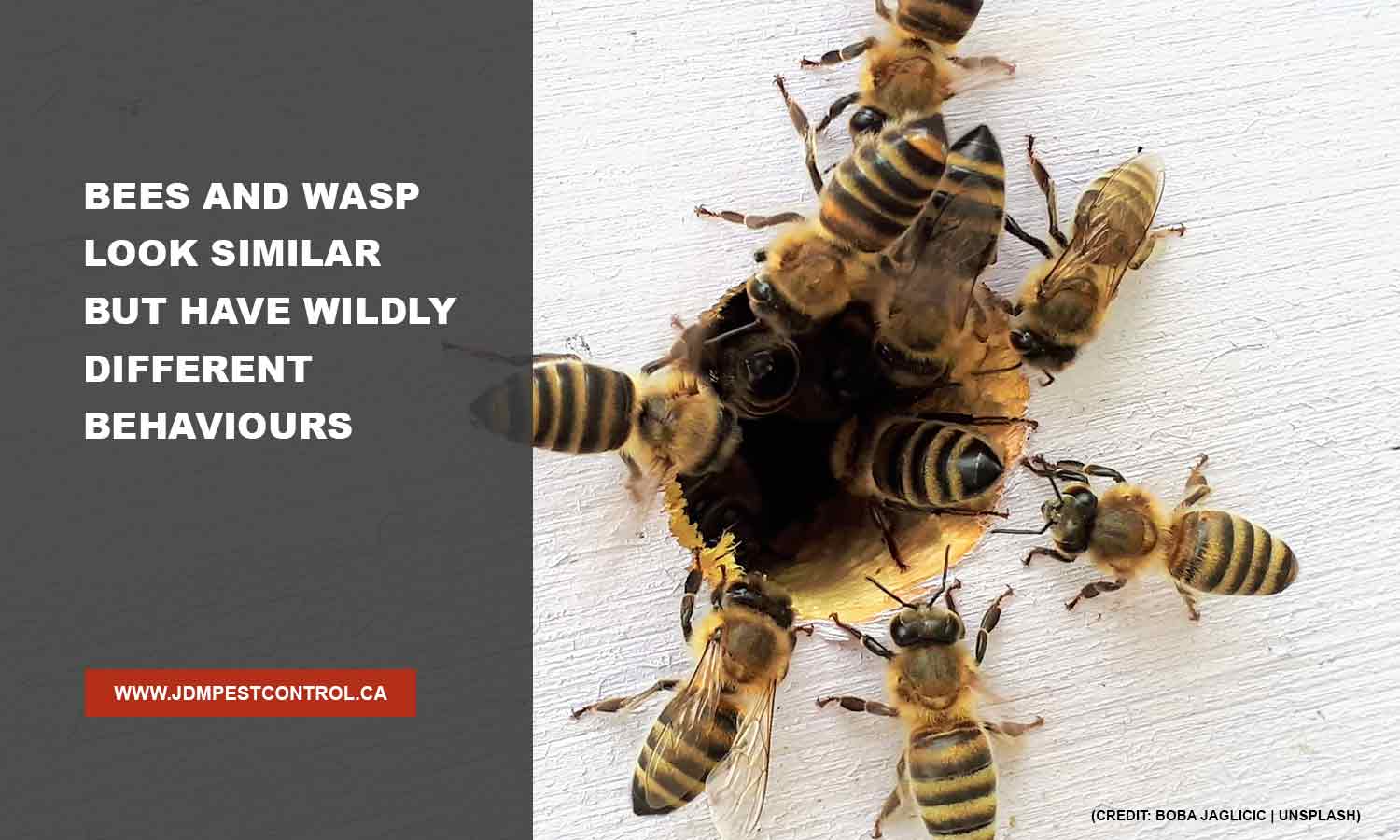
Bee and Wasp Removal All You Need to Know JDM Pest Control
What's the difference between wasps, bees and hornets? 29 August 2018 WATCH: Why wasps aren't as nasty as you might think! There have been even more wasps around this summer than normal. It.
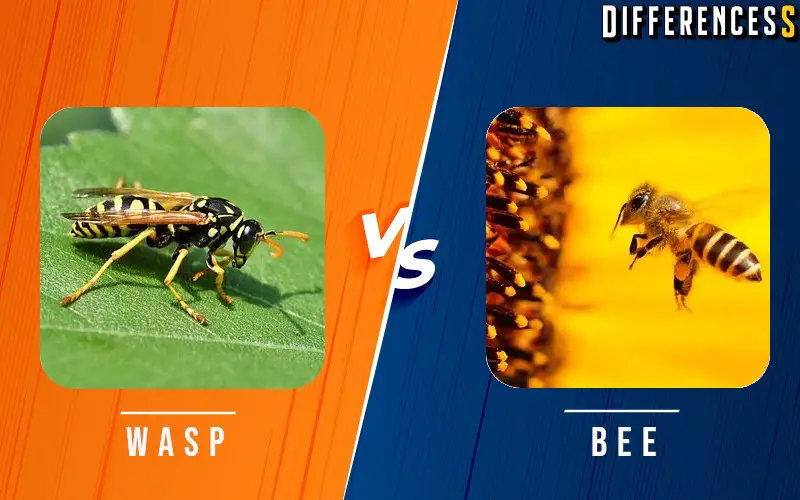
Bee Vs Wasp Differences And Comparison » Differencess
What Stings? You may be a gardener, or have been out for a hike or gone on a picnic and seen an insect wondering whether it was a bee or a wasp. It's not always easy to tell, certain ones even fool the experts, called entomologists. What do the bees and wasps look like? What is a bee? Bumble Bee Honey Bee Cuckoo Bee Bees

What's the difference between wasps and bees? http//www.earthrangers
Last Updated: July 3, 2022 Bees and wasps are actually related. They are both species of an order of insects called Hymenoptera, which also includes ants. Insects in this order are typically—but not always—identifiable by their pairs of membranous wings, their segmented abdomen and, of course, their stingers. Physical Characteristics of a Bee
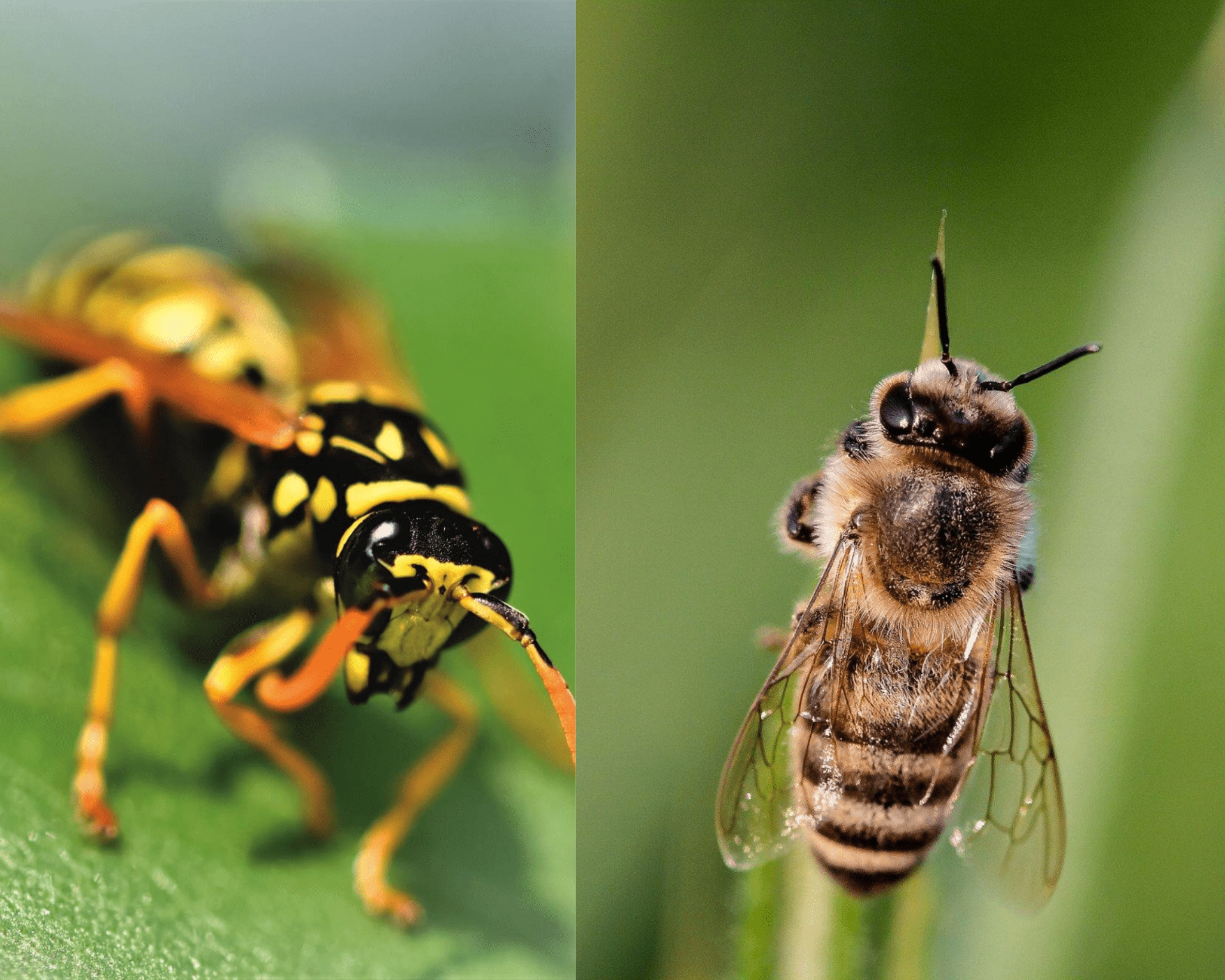
Wasps vs Bees What's the Difference? Excel Pest Services
Bumble Bees Vs. Wasps: Structural Damage. One key distinction between bumble bees and wasps is their impact on structures. While some wasp species, such as yellow jackets, are notorious for causing structural damage, bumble bees are generally harmless in this regard. Bumble bee nests are typically much smaller and less destructive compared to.
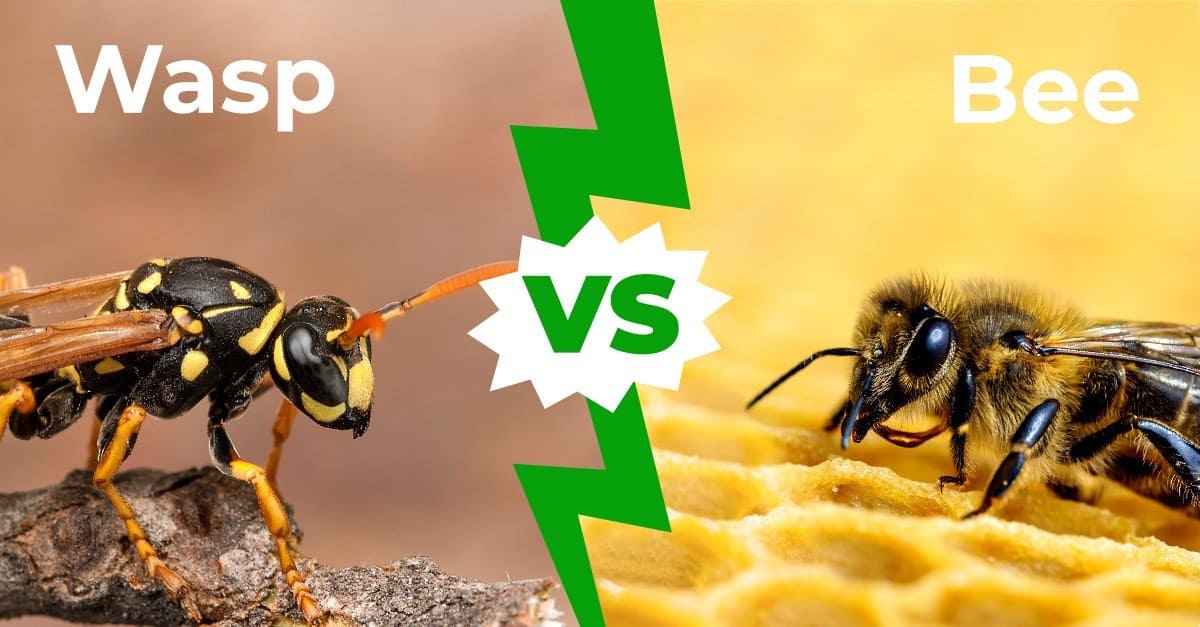
Wasp vs Bee 7 Main Differences Explained AZ Animals
Shape - Most bees, especially bumble bees, have bigger abdomens than hornets and wasps. Wasps and hornets are typically longer and thinner. Color - The coloring between bees, hornets, and wasps can be similar depending on the species. For example, both honeybees and yellowjackets have yellow stripes.

Is it a honeybee, a bumblebee or a wasp?! — Beeloved
Commonly Seen Bees and Wasps. The most commonly encountered bees are honey bees and bumblebees. Another type of bee that may be seen in open areas of yards during the spring are solitary, ground nesting bees. They do not form colonies, but are important pollinators of many plants. Commonly seen wasps are yellow jackets, hornets, cicada killers.
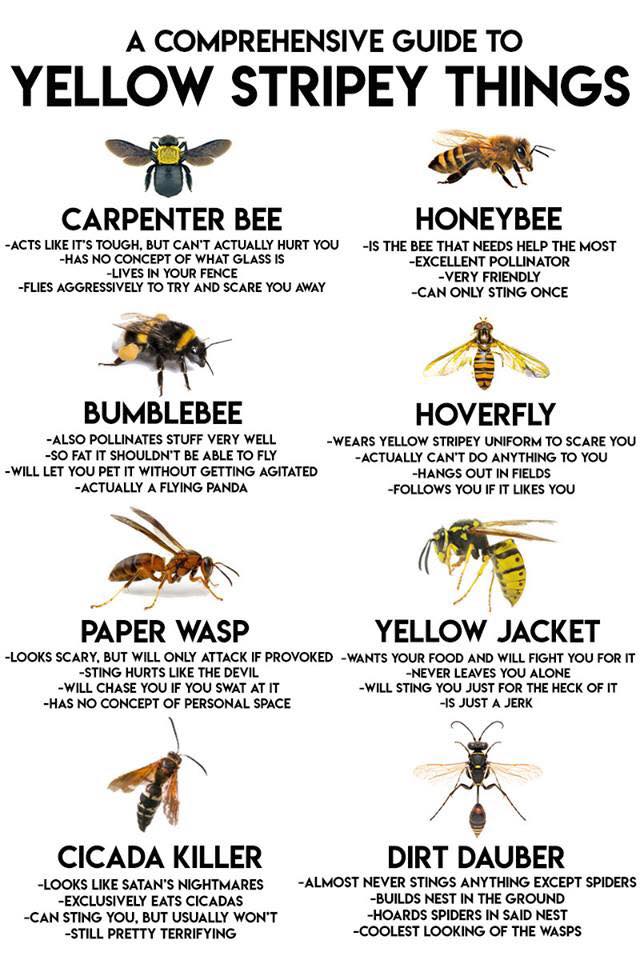
Frequently Asked Questions about Wasps and
Hornets are part of the same family as wasps, but they are three times bigger. Some can even reach lengths between 35 and 40 mm. The shape of a hornet's body is the same as a wasp's, but it's hairier. Hornets are very noisy when they fly. As hornets mainly feed on small insects and fruits, they don't approach humans as much.

Bees vs Wasp Incredible enemies Amazing battles YouTube
A bumblebee (or bumble bee, bumble-bee, or humble-bee) is any of over 250 species in the genus Bombus, part of Apidae, one of the bee families. This genus is the only extant group in the tribe Bombini, though a few extinct related genera (e.g., Calyptapis) are known from fossils. Mar 31, 2022 Wasp
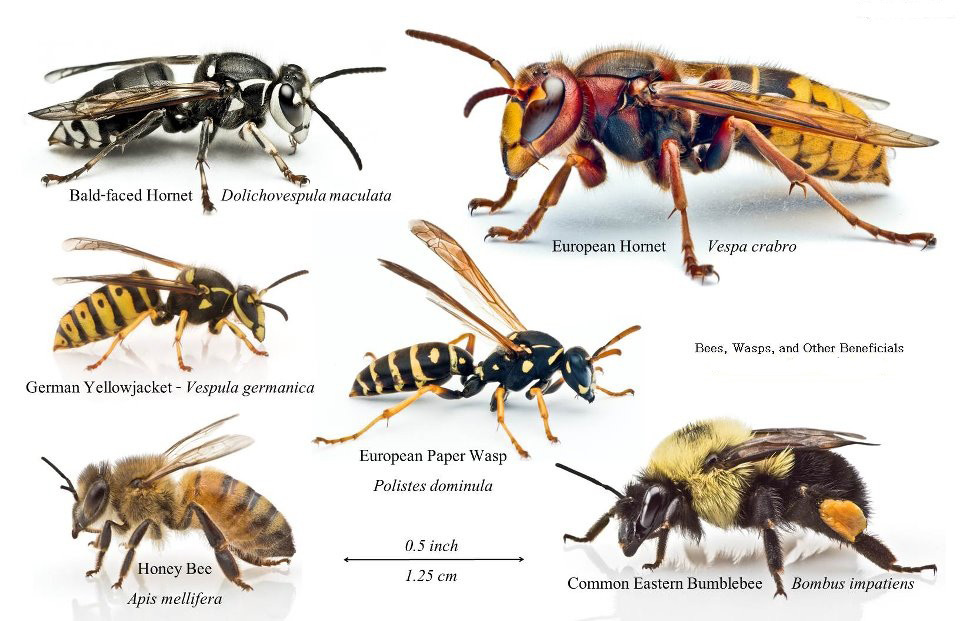
Wasps vs. Bees Humboldt County Beekeepers Association
Characteristics. Amber to brown translucent alternating with black stripes. [a] Exact pattern and colouration varies depending on strain/breed. Yellow with black stripes, sometimes with olive, brown, orange-brown, red, [1] white, or as in Bombus pratorum, dark. [2]

The Differences Between Bees and Wasps Dr. Death Pest Control
Wasps Vs Bees. Wasps and bees have much in common, which is hardly a surprise given that bees are descended from wasps. Wasps have been found in amber deposits (fossilized plant resin) that dates back millions of years 1, and have been identified as the ancestor of the bees and wasps we see today. Take a look at the links below for further information about differences, whether wasps hunt bees.

Differences Between Bees and Wasps Carolina Honeybees
Bumble bees Wasp and bee life cycles All wasps and bees have a complete life cycle with egg, larval, pupal and adult stages. We generally see only the adults as the eggs and larvae are in the nests. The larvae of bees and wasps are white and typically look like grubs. Open all | Close all Yellowjackets and paper wasps Bumble bees Honey bees

How to tell the difference between a bee and a wasp
Differences — Similarities — Physical characteristics of bees vs wasps Both bees and wasps have different body and leg structure. Bees have hairy body and legs, whereas wasps have smooth bodies and legs. The abdomen and thorax of a bee is round, whereas in case of a wasp, it is cylindrical.

Bees vs. Wasps Who Brings The Sting? Daily Infographic
Social bees and wasps have a division of labor (queen, worker, drone) and oftentimes resulting in a large colony in the nest. It's important to note that most bees, social or solitary, are not aggressive.. Xylocopa spp. Black with yellow hairs, bumble bee-like with robust, hairy thorax, shiny black abdomen Size: Large 13 - 30 mm (0.5 - 1..

What’s the Difference Between a Bee and a Wasp? Britannica
Foods of Choice Bees are vegetarian and are pollinators. They sip nectar from flowers and can also drink water and bring water back to the hive to clean it. They do not kill and consume other insects. Wasps are more predatory than bees, hunting and killing prey including caterpillars and flies. However, wasps do sip on nectar too.
Useful guide to differentiate between Wasps, Bees, and r
Attracting Hummingbirds Home Gardening Garden Bugs 6 Key Differences Between Bees and Wasps Kirsten Schrader Updated: Nov. 03, 2022 Use this handy guide to know whether it's a bee or wasp buzzing through your backyard. Shutterstock/irin-k Paper wasp Identifying Bees and Wasps Wasps have slim bodies and narrow waists that connect thorax and abdomen.
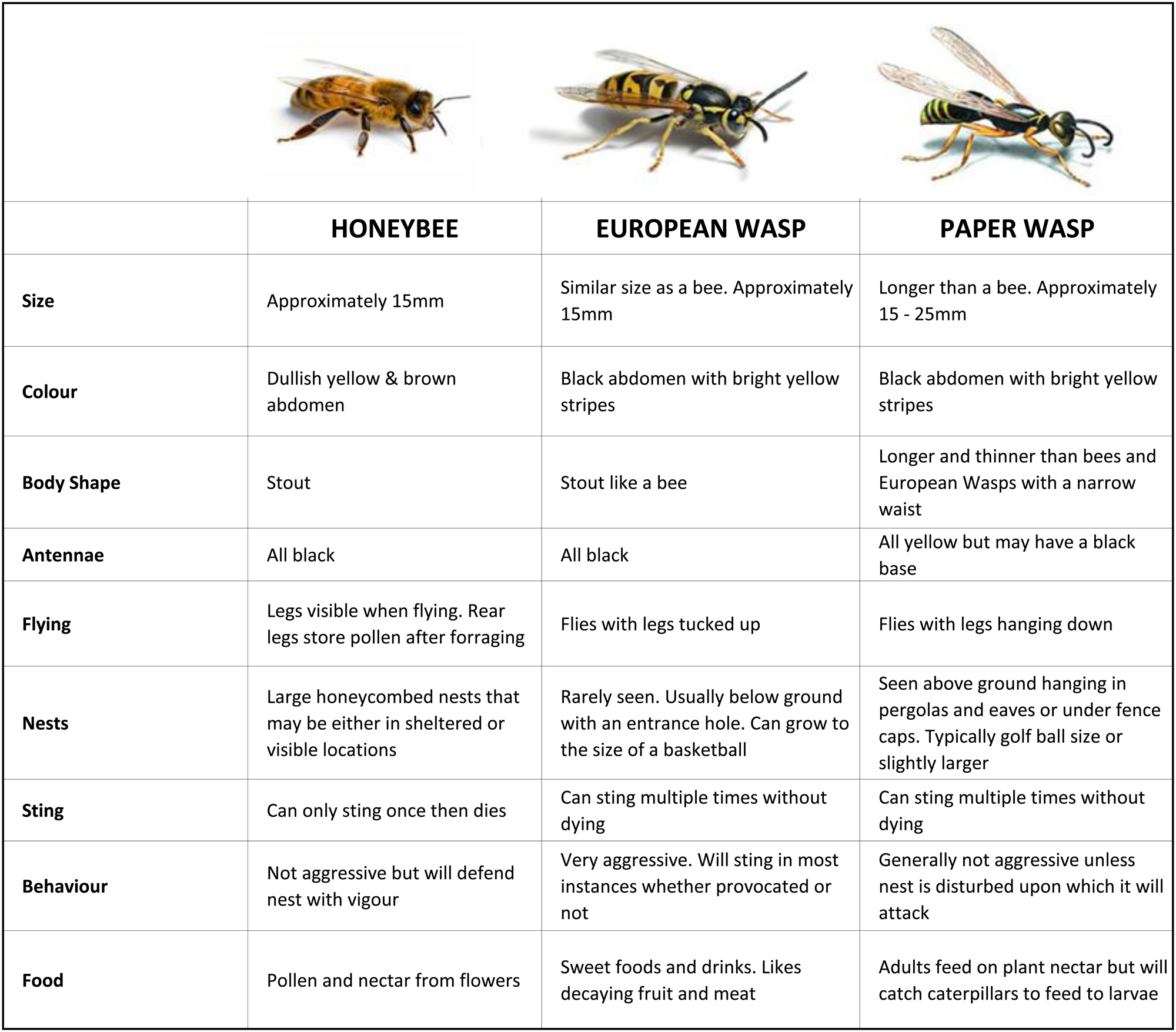
Bees Vs Wasps Comparison Chart • Perth Pest Control
While bees have robust, hairy bodies with flat rear legs, wasps' bodies are slender with a narrow waist connecting the thorax and abdomen. (The thorax and abdomen are the names given to an insect's mid and rear segments.) In addition, wasps appear smooth and shiny and have slender legs shaped like cylinders. Wasps are slender with smooth bodies.